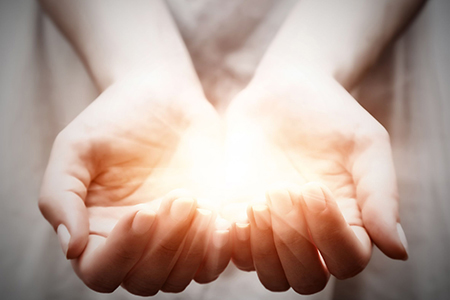
Over the holidays, my sweet husband took me on vacation to a resort in Jamaica. The timing was perfect as I had been called to do some meditative energy work on Christmas day, and there I was surrounded by the enduring ebb of the ocean, as I settled into a heart-filled meditative space.
When the energetic gift had been given and my meditative day was over, I delighted in observing how this small island, and even more specifically the resort, had attracted people from all over the world. The next day, as we walked to the restaurant for breakfast, we heard Japanese, Italian, French, English, German, and Patois—the language of Jamaica. And over the days we were there, we met new friends from England, Canada and New York.
We enjoyed the antics of children, and ooohed and ahhhed at babies from various cultures. What I love about babies and small children is the way that they remind me how similar we are when we come into the world, regardless of the race, creed, or politics of our parents. Oh, certainly we each have our own unique personalities, but when we are very young, we have not yet adopted the beliefs that separate us from each other.
Babies of every culture cry and coo, tug at their toes, put everything in their mouths, and cuddle up to their mommies and daddies. Young children hold on to someone’s fingers when they are learning to walk and later find great joy in running around. They like to sit on Dad’s shoulders for a lift and call for their Moms when they get hurt.
Only later, do we begin to even conceive that our cultures, spiritual and religious beliefs, income, and politics make us different. In our great zeal to feel good about ourselves, it also becomes easy to make ourselves right or better, and those “other” people wrong or inferior.
Growing a bit older and hopefully, a little wiser, now when I have the opportunity to meet people from other cultures and places, I like to get to know them as well as I can, not so that I can measure myself against them, but so that I can celebrate the uniqueness of their thoughts and perceptions. I also love to discover the ways in which we are more alike than we might have first realized, and that discovery is most consistently found in the similarity of our feelings.
We all yearn to be loved, understood, accepted, heard, seen, known, and respected. We all laugh when humor has tickled us. Laugh, dance or sing together, and suddenly there are no differences—no others—only us.
I remember having a dream last year that touched me forever. The devil was with a group of people and me. He kept trying to get me to do things rather inappropriate for me. Initially, because they were rather harmless choices, I went along with him. Just as he was about to ask me to do something that was really going to cause me to measure and choose what I truly believed, someone in the group cracked a joke. There were the devil and I standing next to each other laughing uncontrollably. For a sweet moment, there was no separation.
We separate in our need to be more right or more special than someone else, or to presume we are better than anyone else. We separate into us and them when we think that our culture, religion, ideas, politics or economic status are more important than our humanity. We separate when we further our own betterment at the expense of others.
It is possible to be in our separateness without discrimination and manipulation. We can enjoy and be in joy with our separateness as unique expressions of the Divine. The joy is unifying while also allowing us to discover the individual experiences the Divine is having as it flows through us. Separation does have its place along side unity. What matters most is how we choose to be in our uniqueness and oneness.
I am not saying we will never experience tension as a result of our unique expressions. I am suggesting it is through our humanity that our deepest needs to recognized as special, to be loved, respected, seen, heard, and understood will actually be met, for people of all races, creeds, economic status and beliefs.


